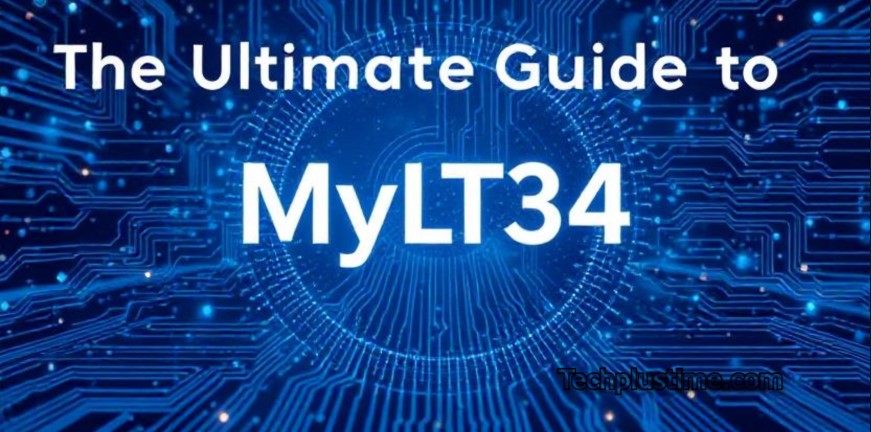In today’s digital age, a reliable computer network is essential for businesses and individuals alike. Whether you’re working from home, running a small business, or managing a large organization in Jacksonville, experiencing a Jacksonville computer network issue can significantly disrupt your operations. Understanding the common causes of network issues, how to address them, and the best ways to prevent them can help ensure that your network runs smoothly and efficiently.
In this article, we’ll cover everything you need to know about Jacksonville computer network issues, from identifying common problems to implementing effective solutions.
What is a Computer Network?
A computer network is a system of interconnected devices (computers, servers, printers, etc.) that communicate with each other, share resources, and exchange data. Networks can vary in size, from a small home network to large enterprise-level systems. A Jacksonville computer network issue refers to any disruption or malfunction in this system that impedes the performance of network devices and services. These issues can arise from various causes, such as hardware failures, software glitches, network congestion, or cybersecurity threats.
Common Jacksonville Computer Network Issues
1. Slow Network Speed
One of the most common complaints associated with Jacksonville computer network issues is slow network speed. Slow connections can hinder productivity and frustrate users. The causes of slow network speeds can vary and include:
- Bandwidth limitations: If the network has more devices connected than the available bandwidth can handle, it can slow down performance.
- Network congestion: High traffic on the network, particularly during peak hours, can cause delays in data transmission.
- Hardware limitations: Outdated or underperforming routers, modems, or network cards can cause sluggish performance.
- Software conflicts: Incompatible or malfunctioning software can disrupt the network’s efficiency.
2. Network Downtime
Network downtime occurs when a system becomes unavailable or disconnected from the internet. This can have a significant impact on businesses, especially those reliant on cloud-based services and remote communication. Common causes of downtime in Jacksonville computer network issues include:
- Hardware failure: A malfunction in hardware such as routers, switches, or servers can lead to an entire network going offline.
- Power outages: Sudden power surges or power outages can cause disruptions to your network.
- ISP outages: Problems with your Internet Service Provider (ISP) can lead to temporary network interruptions.
- Configuration errors: Incorrectly configured settings in the network infrastructure can lead to system crashes or loss of connectivity.
3. Connectivity Issues
Connectivity problems are another frequent cause of Jacksonville computer network issues. Devices might struggle to connect to the internet or other devices on the network. These issues can be attributed to:
- Wi-Fi interference: Physical obstacles, such as walls or electronic devices, can interfere with wireless signals, leading to poor connectivity.
- Incorrect settings: Misconfigured network settings on devices or routers can prevent a connection.
- Signal range: Devices located far from a router or access point may experience connectivity problems due to weak signals.
- DNS issues: Domain Name System (DNS) problems can prevent devices from properly resolving website addresses, making browsing difficult.
4. Security Vulnerabilities
Security breaches and vulnerabilities are major concerns when dealing with Jacksonville computer network issues. Cyberattacks can compromise sensitive data, disrupt operations, and damage your reputation. Some common network security issues include:
- Weak passwords: Using easy-to-guess passwords for devices or Wi-Fi networks makes it easier for attackers to gain unauthorized access.
- Outdated software: Failure to update software and firmware can leave networks vulnerable to attacks.
- Unsecured networks: Public or unsecured networks, such as free Wi-Fi hotspots, can expose devices to cyberattacks and data theft.
- Malware and viruses: Malicious software can infiltrate a network and cause widespread damage, stealing data or hijacking devices.
5. IP Address Conflicts
IP address conflicts occur when two devices on the same network are assigned the same IP address. This can result in devices being unable to communicate properly, leading to network issues. Resolving this issue typically involves:
- Releasing and renewing IP addresses: On most devices, IP addresses can be manually released and renewed.
- Automatic IP address assignment: Ensuring that devices receive IP addresses automatically through DHCP (Dynamic Host Configuration Protocol) can prevent conflicts.
6. Network Configuration Errors
Improper configuration of network devices or settings can cause network issues. This can happen when routers, firewalls, or servers are incorrectly set up, preventing proper data flow between devices. It is important to have a clear and accurate network configuration to avoid disruptions.
Troubleshooting Jacksonville Computer Network Issues
1. Rebooting Devices
One of the easiest and most effective ways to resolve many Jacksonville computer network issues is to reboot your devices. This includes restarting your computer, modem, router, and any other network-related hardware. A simple reboot can resolve issues caused by temporary software glitches or network congestion.
2. Checking Cables and Connections
Sometimes, the issue may lie with a loose cable or an incorrect connection. Check all physical connections to ensure that cables are plugged in securely. This includes Ethernet cables, power cords, and coaxial cables for your modem or router.
3. Updating Software and Drivers
Outdated software or drivers can cause conflicts and lead to performance issues. Ensure that your operating system, network drivers, router firmware, and any related software are up-to-date. Manufacturers often release updates to fix bugs and improve performance.
4. Running Network Diagnostics
Many operating systems, including Windows and macOS, offer built-in network diagnostic tools. Running these diagnostics can help identify the root cause of connectivity issues and suggest potential fixes.
5. Testing Your Internet Connection
To determine whether the issue is with your network or your internet service, you can run a speed test or check your connection through the ISP’s status page. If your internet service provider (ISP) is experiencing an outage or throttling speeds, you may need to wait for the issue to be resolved.
6. Check for Interference
If you’re using Wi-Fi, interference from nearby devices (such as microwaves or Bluetooth devices) could be causing slow speeds or disconnections. Try changing the Wi-Fi channel on your router or moving the router to a more centralized location.
7. Consulting a Professional IT Technician
If you’re unable to resolve the Jacksonville computer network issue on your own, it may be time to consult a professional IT technician. An experienced technician can perform in-depth diagnostics, identify complex issues, and implement appropriate solutions to get your network back up and running.
Preventing Jacksonville Computer Network Issues
1. Invest in Quality Network Equipment
To avoid common network issues, ensure that you are using reliable and high-quality network equipment. This includes routers, modems, and switches that are designed to handle your network’s demands. Upgrading to newer, more powerful equipment can help prevent slow speeds and connectivity issues.
2. Use a Strong Network Security System
A strong security system can prevent many of the vulnerabilities associated with Jacksonville computer network issues. Implement a firewall, use encryption for your wireless network, and ensure that your devices have up-to-date antivirus software. Regularly change your passwords and use multi-factor authentication where possible.
3. Perform Regular Maintenance
Regular network maintenance is key to preventing future issues. This includes monitoring network performance, checking for hardware failures, updating software, and performing routine diagnostics. By maintaining your network, you can spot potential problems before they cause significant disruptions.
4. Train Employees and Users
For businesses in Jacksonville, employee training is essential. Educate your staff on how to use the network correctly, avoid risky behavior (such as clicking on suspicious links), and report any potential network issues. This proactive approach can minimize human error and prevent security breaches.
5. Monitor Network Traffic
For larger businesses, monitoring network traffic is crucial for detecting issues early. Implementing a network monitoring system allows businesses to track performance, identify congestion, and receive alerts when something goes wrong. This early detection can prevent downtime and other disruptions.
Conclusion
Jacksonville computer network issues are an unfortunate but inevitable part of using modern technology. From slow speeds and connectivity issues to security vulnerabilities and configuration errors, understanding the common problems and troubleshooting techniques can help you quickly resolve these issues.
By investing in high-quality equipment, ensuring robust network security, and performing regular maintenance, you can prevent many network issues from occurring in the first place. Whether you’re a business owner in Jacksonville or a home user, taking a proactive approach to network management will help keep your digital world running smoothly.



